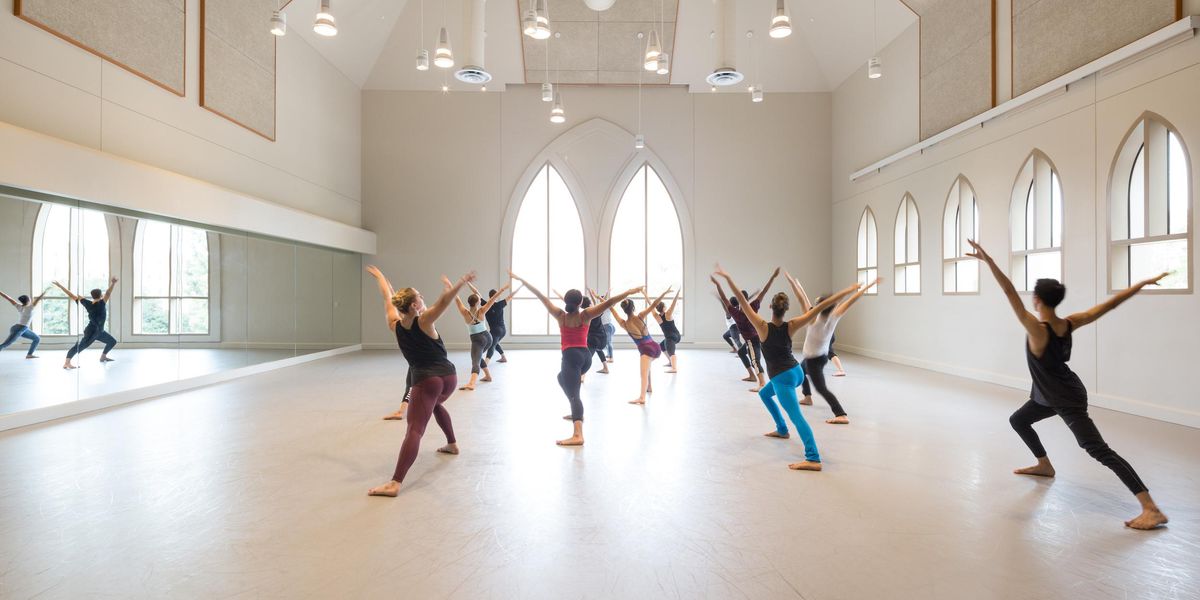Meet Shamel Pitts, A Former Batsheva Dancer with a Striking Dance Film
Shamel Pitts’ dance film, “Blackbox,” has the kind of cinematic visual quality most dance artists can only dream of. A room that feels almost dystopian—with furniture and objects covered in black trash bags—sits in the middle of an expansive desert, with no other signs of life in sight. Since leaving Batsheva Dance Company last July after seven years, Pitts has established himself as a creator with a vision that’s all his own. In addition to the success of last month’s film release, he’s currently touring with the 45-minute long performance installation version of
Blackbox as well as with buzzy contemporary company L-E-V. He spoke with Dance Magazine about life post-Batsheva and the exploration of identity that inspired Blackbox.
What was your Batsheva experience like? Why did you leave?
When I was a sophomore at Juilliard, Ohad Naharin came to work with us. It changed my life, basically. It was a huge reminder of why I dance. Pleasure, passion to move, the ability to make fun of yourself. I told him, I’m in love with your work and I would love to work with you in Batsheva. It’s been meaningful, it’s been dynamic, it’s been a dream realized. With all dreams though, once they become reality, things come up and at some point I realized I needed to leave the company. When I told him I needed to leave, he said it doesn’t mean that he and I are leaving each other. I feel the same way.
As a creator, do you feel the weight of the Ohad legacy?
To be a part of his legacy is an honor. He is a master and a mentor to me. In no way do I feel pressured to do something other than what my voice is. I’m trying to find what that is. I have an interest in creating things that are more performance art, that can blur what it means to dance. I don’t feel pressure, I feel the opposite. I feel unleashed.
How was the “Blackbox” film born?
On my 30th birthday I performed Blackbox for the first time in my apartment. My friend, Aviv Maaravi, who is a big commercial director in Israel, was very moved by the work. He decided to build a box in the middle of the desert. He asked me what I was doing one week, and I had rehearsal with Batsheva. He told me that I wasn’t going. He had gathered a huge crew. I couldn’t say no. To see it in the middle of the desert, planted there like a spaceship, it was really beyond.
You wrote the text? Where did it come from?
I’ve had a huge passion for writing for a long time. It’s been a passion that was very private. I was teaching myself how to make words dance. Form and content and rhyme and musicality and texture of words. I started a book project calledLittle Black Book of Red.Red was my nickname, growing up in Brooklyn. Now that I live far from Brooklyn, no one calls me Red anymore. I used the book to keep him alive.
Blackbox came from a need to give the words a platform. I have no training in writing, so I allowed myself the freedom to go towards things that are unknown. There’s a lot of heaviness inside of the text, there’s a lot of weight to the words, but it came from a light place of a play with words and form.
In the text, you talk about your roots, your ancestors, and I’m wondering where the room you constructed fits into that.
What came up as I was traveling with Batsheva were these existential questions. Who we are, where we come from. A lot of labels started to come in. Labels are boxes. In trying to answer these questions, I put myself into those boxes and dug deep towards that, towards my family, my ancestors. At some point I had to deal with them and learn from them and celebrate them and break them down and run beyond them.
I have performances of Blackbox in NYC. I’m performing with L-E-V. I’m teaching and staging Ohad’s work on Cincinnati Ballet pretty soon. I’m potentially doing Blackbox at the Tel Aviv Museum. I created a duet in Brazil called Black Velvet. It’s the big sister to BlackBox. There’s no box but something about the content is close to Blackbox but more developed. I hope to have more performances of that and to bring it to New York. I hope to make an art book out of the text from BlackBox. I’m uprooted for now. I will continue to be a part of Tel Aviv, culturally and artistically, although it won’t be a base for me. It looks more possible for Brooklyn to be a base. I’m floating and flying.




